Resources
Get Matched to the Right Builder
FIND THE PERFECT CUSTOM HOME BUILDER WITH OUR FREE ASSESSMENT
Tired of feeling overwhelmed? Look no further. We'll match you to the right builder in the Houston area and save you months of valuable time and money you'd spend trying to find one on your own. Click below to get started!
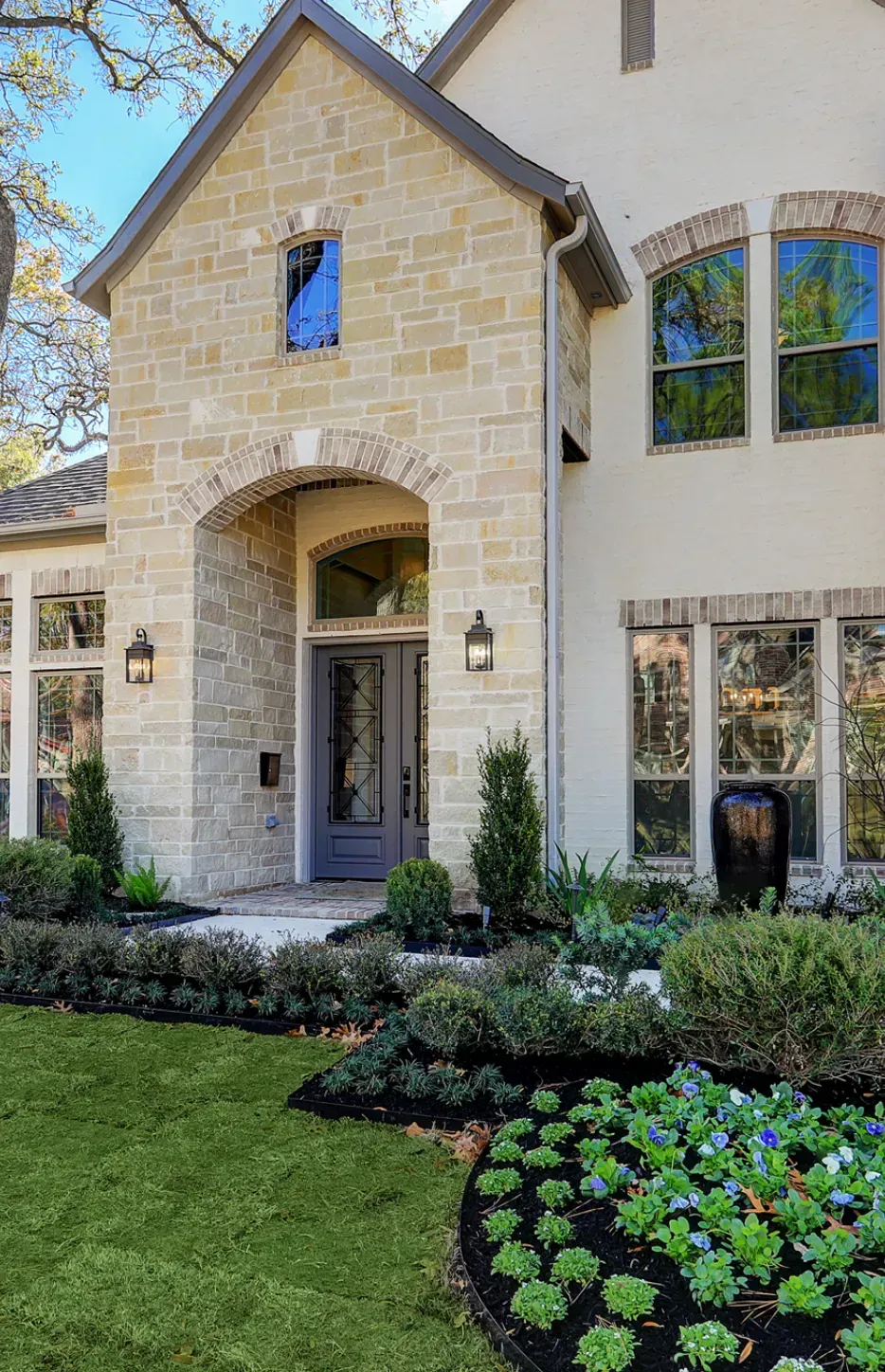
Download The Ultimate Custom Home Building Guide
A Step-by-step guide to building your custom dream home.
Download The Ultimate Custom Home Building Checklist
Finance
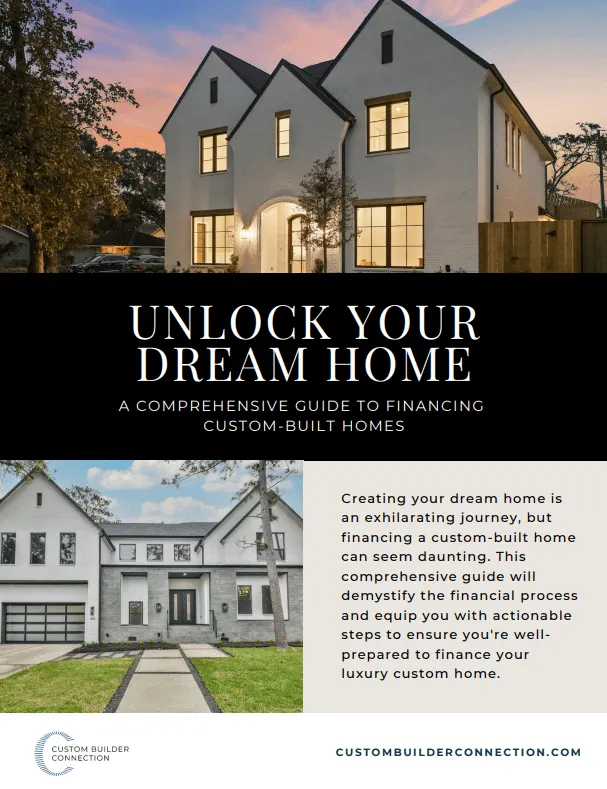
Finding Lot

Best Builder

Explore Our Gallery of Custom Homes
Browse our finished projects that display the craftsmanship of the builders we’ve matched with homeowners – turning dreams into reality.
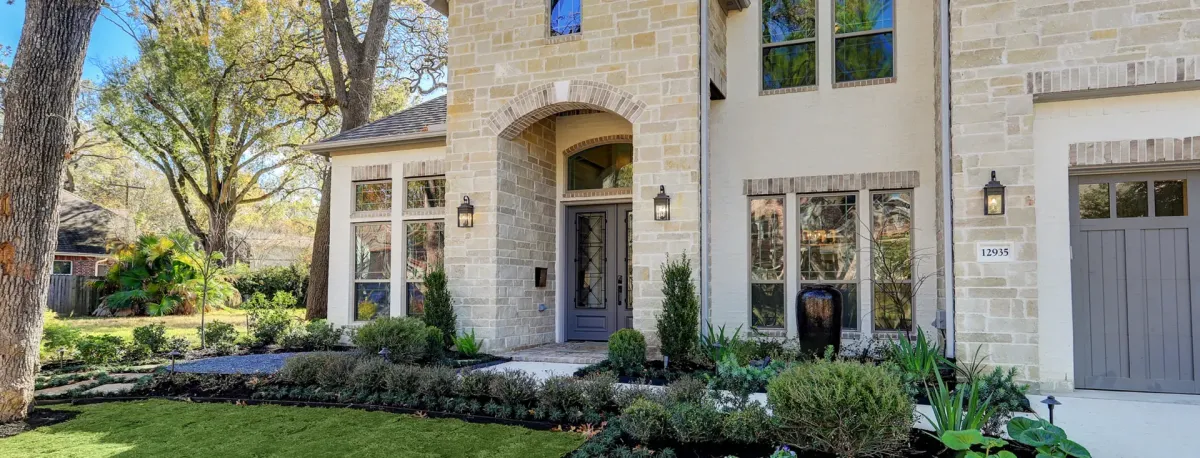
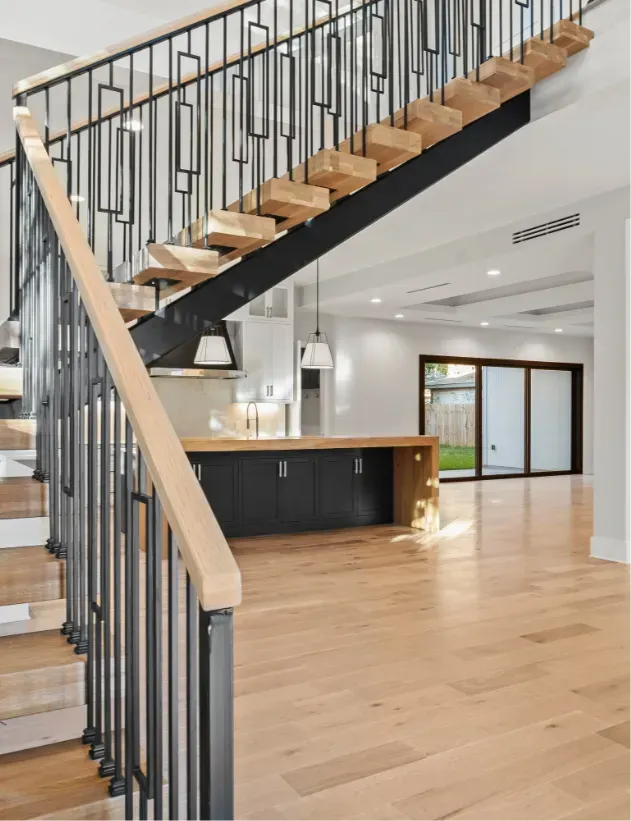

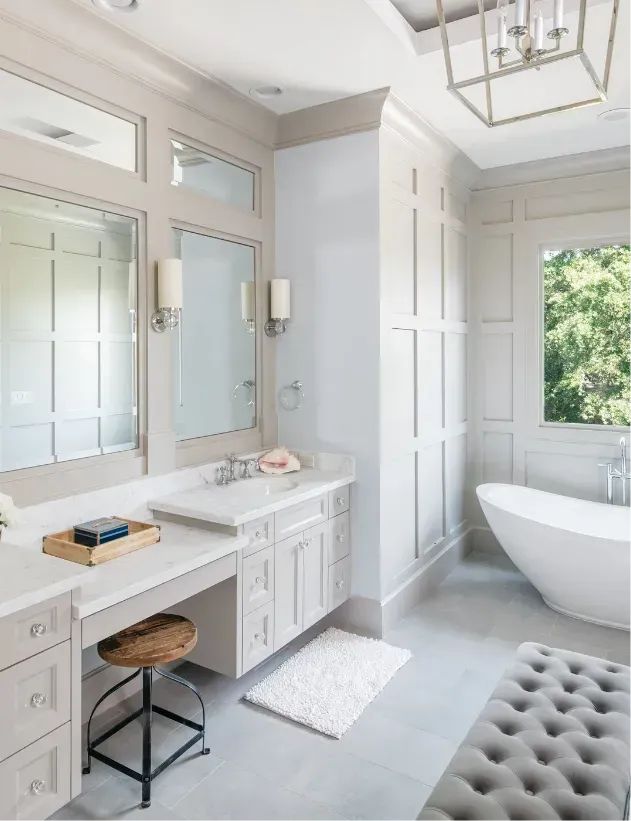
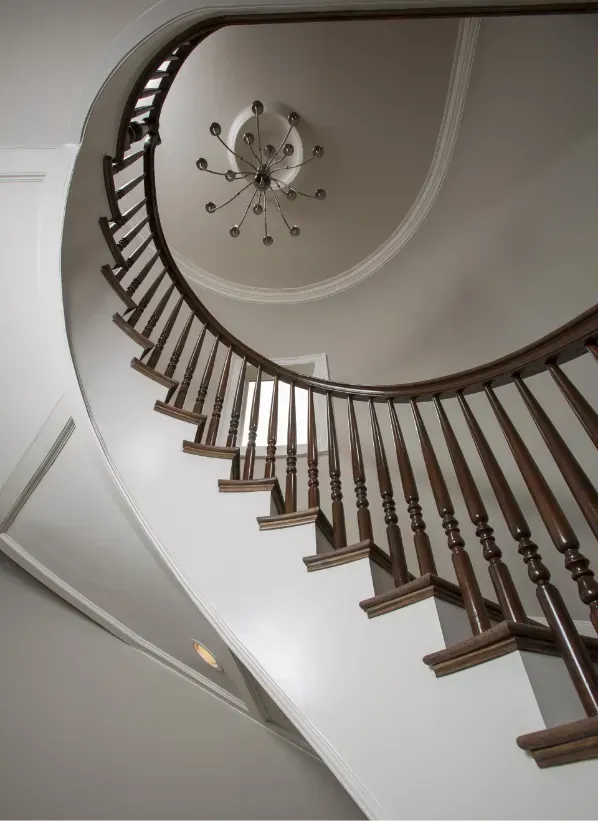
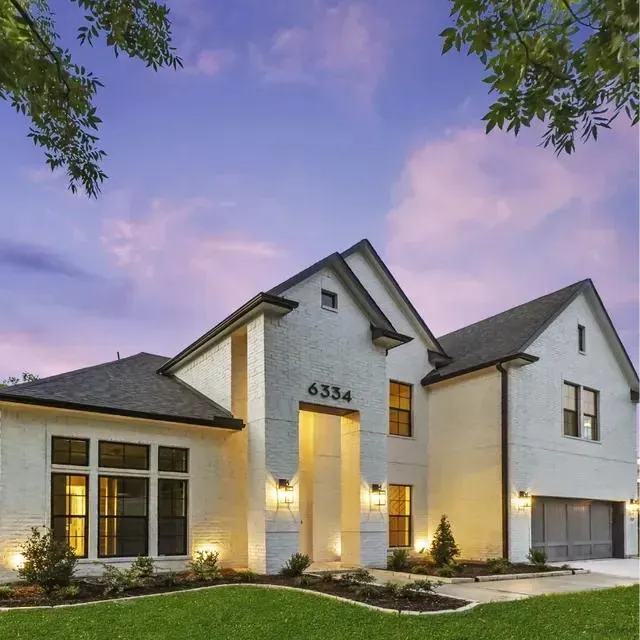
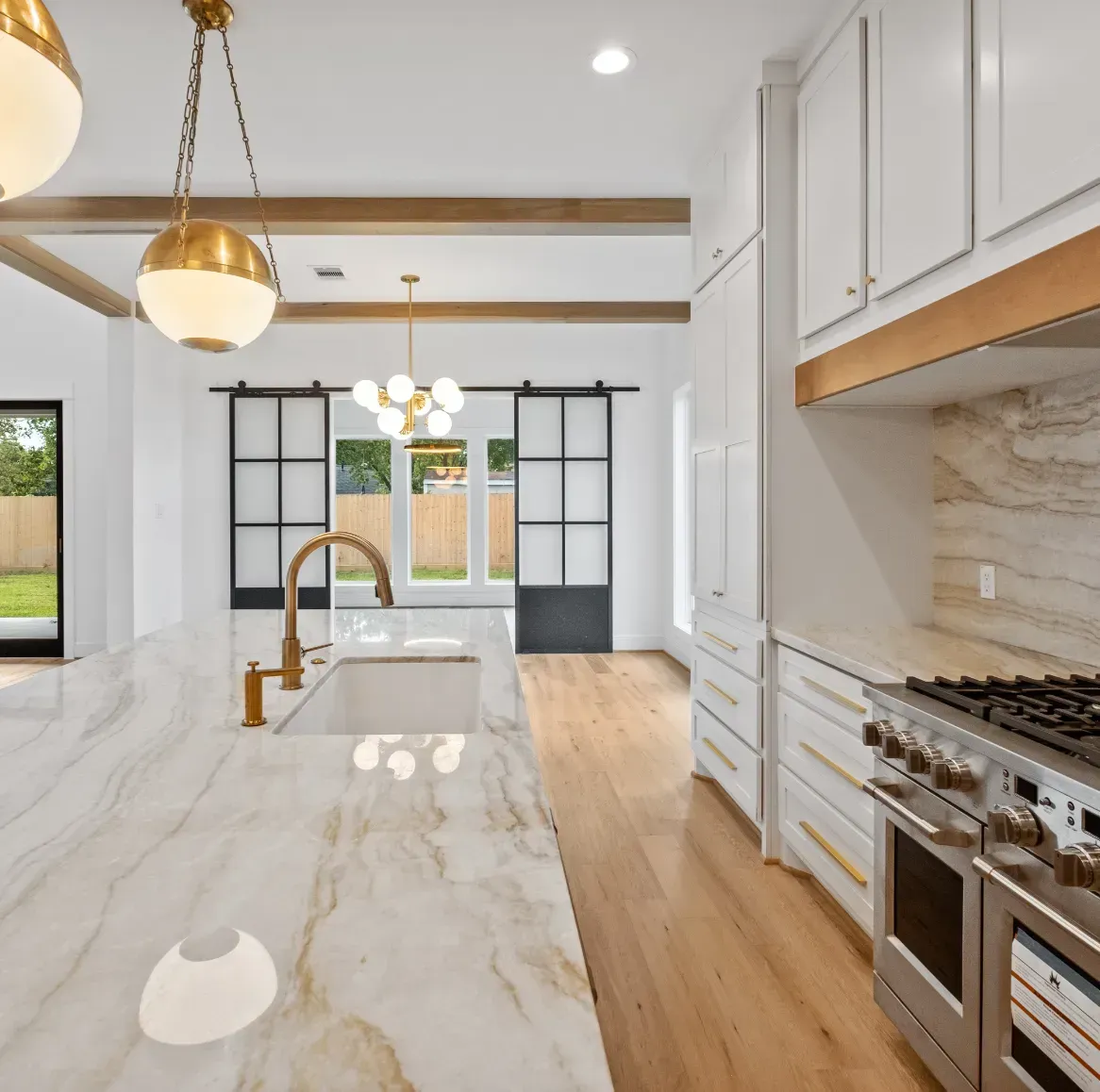
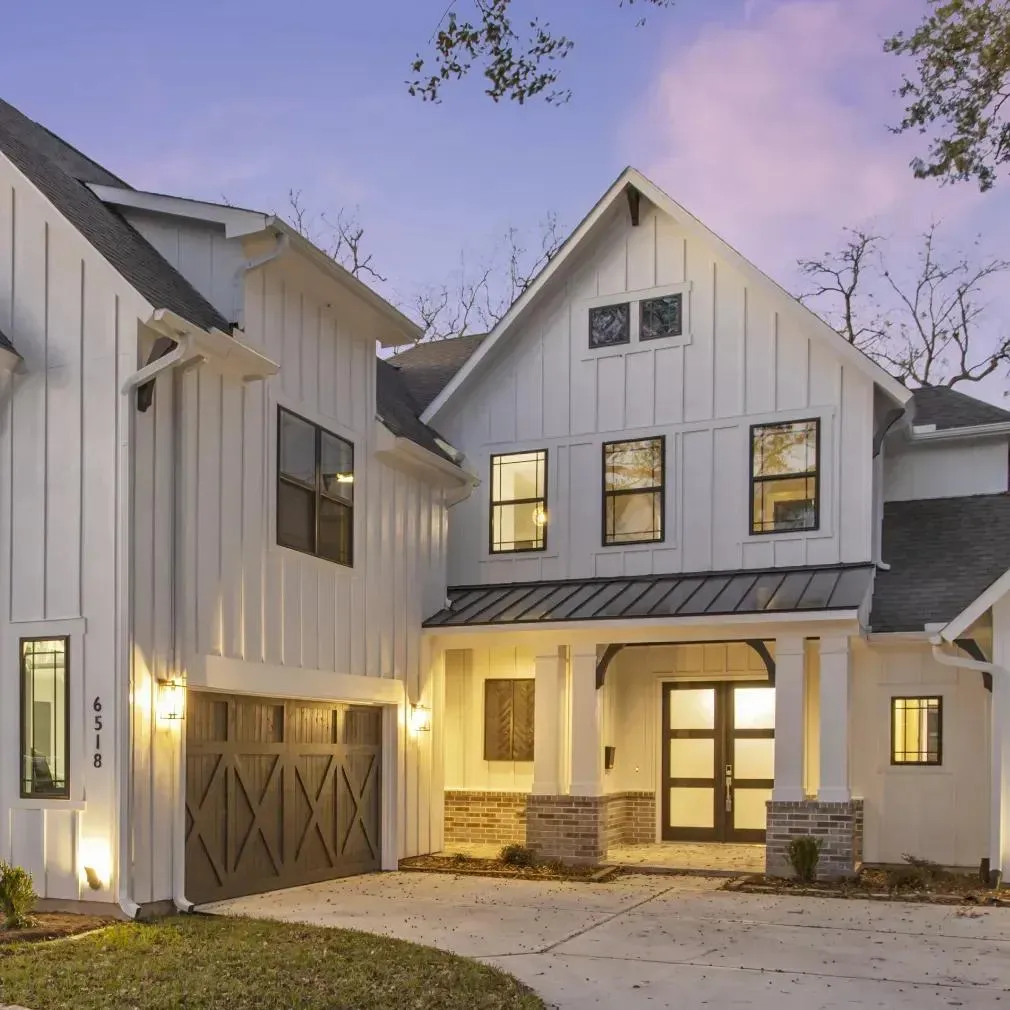
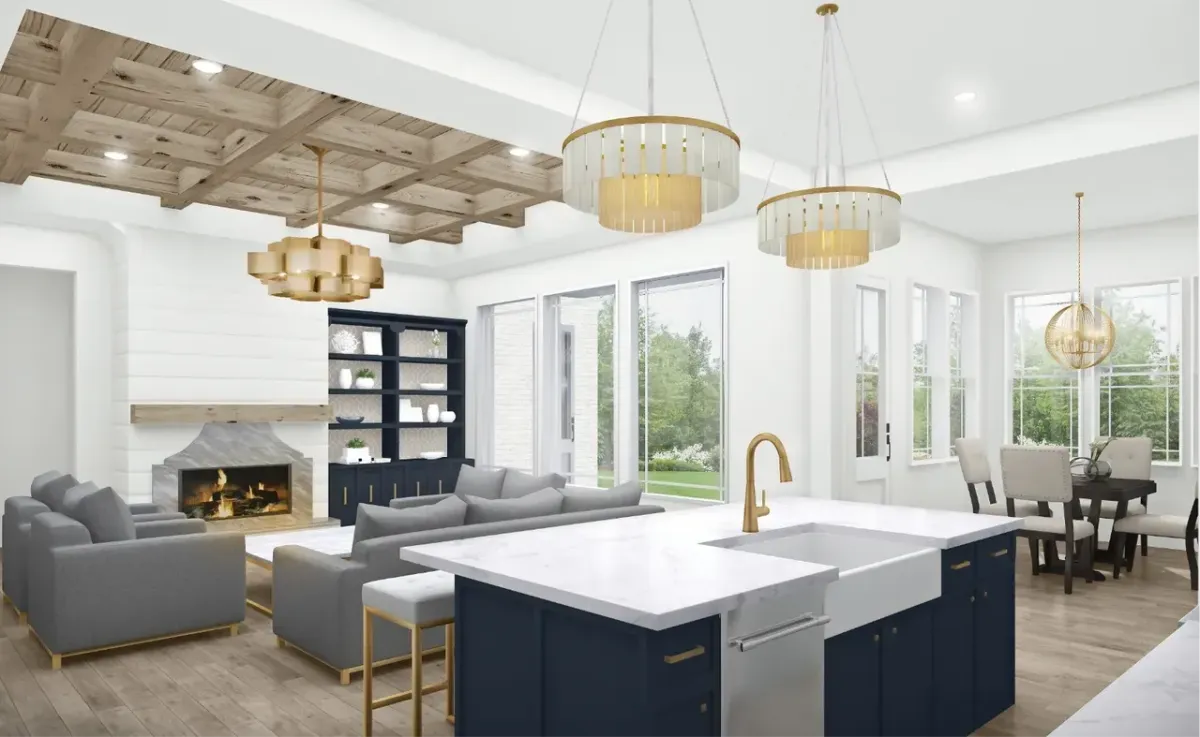
BLOG

Keep Your Custom Home Construction Budget Under Control
Building your dream home within budget can be challenging. Are you worried about overspending or facing unexpected costs during construction? This guide will provide effective strategies for managing your custom home construction budget. We'll cover setting financial controls, avoiding common pitfalls, and working with contractors to optimize costs. By following these practical tips, you'll learn how to prioritize essential features and make smart financial decisions throughout the building process, ensuring your dream home becomes a reality without breaking the bank.
Key Takeaways
Establish a detailed budget plan to allocate funds wisely and prioritize spending
Use budgeting software for real-time expense tracking and improved financial oversight
Differentiate between wants and needs to focus on essential features and structural elements
Maintain transparent communication with contractors to prevent misunderstandings and manage costs effectively
Conduct regular budget reviews to monitor progress and adapt to changes while maintaining financial control
Understanding Custom Home Construction Budget Strategies

Custom home construction budget strategies involve key elements that shape costs, create realistic financial plans, and establish detailed budgets. These approaches help manage cash flow, address real estate factors, and consider insurance needs. Effective budget planning facilitates smooth project management and ensures all stakeholders are aligned, leading to successful custom home builds that stay on track financially.
Key Elements That Influence Your Budget
Several key elements significantly influence a custom home construction budget. The expertise helps determine land costs and market trends. Window selections impact energy efficiency and overall aesthetics. The durability of materials affects long-term maintenance expenses. Engineers and architects play crucial roles in design and structural decisions, influencing project costs. Consider these factors when planning a custom home budget:
Land acquisition and site preparation costs
Architectural and engineering fees
Building materials and finishes
Labor and construction costs
Permits and inspections
Energy-efficient features and systems
Creating a Realistic Construction Budget
Creating a realistic construction budget for a custom home requires careful consideration of various factors. Property costs, including the land and any necessary site preparation, form the foundation of the budget. The chosen floor plan impacts material requirements and labor costs, while specific selections like wood flooring can significantly affect overall expenses. Homeowners must remember that unexpected costs may arise during construction, so including a contingency fund is essential. By working closely with experienced professionals and thoroughly researching each aspect of the build, homeowners can develop a comprehensive and realistic budget that aligns with their vision for their dream house.
Benefits of Establishing a Detailed Budget Plan
Establishing a detailed budget plan offers numerous benefits for custom home construction projects. It helps homeowners allocate funds wisely, from essential elements like the driveway to interior details like furniture. A comprehensive budget allows for better financial planning, potentially avoiding the need for high-interest credit card debt or loans. Additionally, it helps prioritize spending, ensuring that important aspects of the build are covered while leaving room for entertainment features or luxury items.
Setting Up Financial Controls for Your Project

Setting up financial controls is crucial for managing custom home construction budgets. This section explores strategies for tracking expenses, from kitchen renovations to complex projects. It discusses utilizing budgeting software for improved oversight and implementing regular financial reviews. These approaches help homeowners analyze data, control costs, and stay on track throughout the building process.
How to Track Construction Expenses
Tracking construction expenses is crucial for maintaining control over custom home budgets. Homeowners can use automation tools to monitor costs for each space, from bathrooms to kitchens. Regular home inspections help identify potential issues early, preventing costly overruns. Subcontractors' invoices should be carefully reviewed and compared against the initial estimates. Effective tracking methods include:
Utilizing project management software for real-time expense updates
Creating detailed spreadsheets for each construction phase
Implementing a purchase order system for materials and services
Conducting weekly financial reviews with the general contractor
Maintaining a separate bank account for construction expenses
Utilizing Budgeting Software for Better Oversight
Utilizing budgeting software enhances oversight in custom home construction projects, especially in cities like Houston, where zoning regulations may impact costs. These tools provide real-time tracking of expenses, allowing homeowners to monitor spending on various aspects such as heating systems and custom features. Effective budgeting software integrates with project management platforms, offering a comprehensive strategy for financial control.
Implementing Regular Financial Reviews
Implementing regular financial reviews is crucial for maintaining control over custom home construction budgets. These reviews help homeowners track expenses related to safety measures, lumber costs, and electricity usage, ensuring their investment remains on track. By conducting frequent assessments, property owners can anticipate potential issues, such as fluctuations in property tax or unexpected material price increases, and adjust their budget accordingly. This proactive approach allows for timely decision-making and helps prevent cost overruns, ultimately protecting the homeowner's financial interests throughout the construction process.
Identifying Common Budget Pitfalls and How to Avoid Them

Custom home builders face common budget pitfalls that can derail projects. Critical strategies include recognizing scope creep, addressing last-minute design changes, and planning for unexpected costs. From attic renovations to plumbing upgrades, each option impacts the budget. Understanding interest rates and consulting a lawyer can help navigate financial challenges, ensuring the project stays on track.
Recognizing Scope Creep in Home Projects
Recognizing scope creep in home projects requires vigilant project management and unwavering attention to the initial goals. As homeowners' income fluctuates or inspiration strikes, they may be tempted to add extra features or upgrade materials, leading to budget overruns. Skilled carpentry work, for instance, might inspire homeowners to request additional custom elements, expanding the project's scope. To combat this, homeowners and builders should establish clear objectives from the outset and regularly review progress against these goals, ensuring the project stays on track financially and temporally.
Addressing Last-Minute Design Changes
Addressing last-minute design changes in custom home construction can significantly impact the budget. Homeowners may decide to upgrade tile selections or add a smart thermostat, leading to price increases. These alterations can also affect tax implications and overall project timelines. Builders should establish a clear change order process to mitigate financial risks, outlining how modifications, such as shower upgrades, will influence costs and schedules. This proactive approach helps maintain budget control while accommodating homeowners' evolving preferences.
Planning for Unexpected Costs
Planning for unexpected costs in custom home construction requires thorough research and the establishment of a contingency fund. Homeowners should carefully review any covenant restrictions that may impact their project and factor in potential interest rate fluctuations. By setting aside 10-20% of the total budget for unforeseen expenses, builders can better manage surprises such as site condition issues or material cost increases, ensuring the project stays on track financially.
Prioritizing Essential Features to Stay Within Budget

Prioritizing essential features in custom home construction helps manage budgets effectively. Homeowners must differentiate between wants and needs, considering factors like renewable energy and interior design. Smart upgrades can add value without excessive costs, while budget-friendly landscaping ideas enhance curb appeal. Builders can navigate supply chain challenges by focusing on crucial elements, carefully analyzing data, and mitigating financial risks.
Differentiating Between Wants and Needs
Differentiating between wants and needs is crucial for staying within budget during custom home construction. The National Association of Home Builders recommends prioritizing essential features that impact health, such as proper ventilation and Energy Star-certified appliances. Homeowners should focus on structural elements like concrete foundations and energy-efficient systems before considering community amenities or luxury finishes. This approach ensures a solid, functional home while allowing flexibility for future upgrades:
Prioritize structural integrity and energy efficiency
Focus on health-related features like ventilation
Consider long-term value and functionality
Evaluate community needs vs. personal preferences
Plan for future upgrades or additions
Smart Upgrades That Add Value Without Breaking the Bank
Smart upgrades in custom home construction can add significant value without straining the budget. Homeowners can enhance their living experience by incorporating home automation systems that control lighting, temperature, and security. Energy-efficient LED lighting fixtures offer long-term savings while improving ambiance. Durable, low-maintenance flooring options like luxury vinyl planks provide both aesthetic appeal and practicality. These strategic choices optimize the home's functionality and appeal without compromising the overall construction budget.
Budget-Friendly Landscaping Ideas
Budget-friendly landscaping ideas can significantly enhance a custom home's curb appeal without straining finances. Homeowners can consider installing a flat roof with solar panels, combining aesthetic appeal with long-term utility savings. Strategic placement of native plants reduces water consumption and maintenance costs, while mulching helps retain moisture and suppress weeds, lowering overall landscaping expenses. By focusing on these cost-effective solutions, homeowners can create an attractive outdoor space that complements their custom-built home without breaking the bank.
Working With Contractors to Optimize Your Budget

Collaborating effectively with contractors is crucial for optimizing custom home construction budgets. Transparent communication ensures clarity on costs and expectations, while negotiating contracts can secure better rates. Establishing trust with builders fosters a productive partnership, potentially leading to energy-efficient solutions and quality materials like brick. This approach maximizes the return on investment, turning dream homes into reality without compromising payments or quality.
The Importance of Transparent Communication
Transparent communication between homeowners and contractors is crucial for optimizing custom home construction budgets. Both parties can make informed decisions by openly discussing project details, such as the percentage of the budget allocated for a porch or the type of glass used in windows. This transparency extends to lawn care and cost per square foot, ensuring that every aspect of the build is accounted for. Clear communication helps prevent misunderstandings and allows for better budget management throughout the construction process.
Negotiating Contracts for Better Rates
Negotiating contracts for better rates in custom home construction can significantly impact the overall budget. Homeowners can leverage their knowledge of paint costs, maintenance requirements, and aesthetic preferences to secure favorable terms. By discussing these aspects upfront, they can allocate money more effectively, potentially saving on long-term expenses. Skilled negotiation can lead to better pricing on materials and labor, allowing for a balanced approach to achieving desired aesthetics within the established budget.
Establishing a Trustworthy Relationship With Builders
Establishing a trustworthy relationship with builders is crucial for effectively managing custom home construction budgets. Open communication helps prevent scope creep and ensures efficiency throughout the project. Builders' knowledge of soil conditions and local regulations can save homeowners time and money, making them a valuable resource. By fostering trust, homeowners and builders can work together to address challenges, optimize costs, and achieve the desired outcome within budget constraints.
Reviewing and Adjusting Your Budget Throughout Construction

Regular budget reviews are essential for custom home construction success. Homeowners must monitor progress against their budget, adapting to changes while maintaining financial control. This process involves tracking expenses for each room's elements, such as cabinetry, bedrooms, and countertops. Conducting a final budget review after completion helps assess overall financial performance and identify areas for improvement in future projects.
Monitoring Progress Against Your Budget
Project managers use various tools to monitor progress against custom home construction budgets effectively. Virtual reality technology allows homeowners to visualize changes and make informed decisions about garden layouts or interior design, potentially avoiding costly revisions. Information gathered from regular site visits and contractor reports helps track expenditures and identify potential overruns early. This proactive approach enables timely adjustments to keep the project on budget.
Adapting to Changes While Maintaining Financial Control
Adapting to changes while maintaining financial control requires strategic planning throughout the custom home construction process. Homeowners should anticipate potential adjustments in their down payment structure or landscape design, ensuring their contract allows for flexibility without compromising the overall budget. By closely monitoring expenses for major items like refrigerators and being prepared to make trade-offs, homeowners can navigate unexpected changes while keeping their projects on track financially.
Conducting a Final Budget Review After Completion
Conducting a final budget review after completing a custom home construction project is crucial for assessing financial performance and identifying areas for improvement. Homeowners should compare their final mortgage payments and total construction budget against the initial spreadsheet projections, analyzing any discrepancies. This review process helps evaluate the effectiveness of color choices, building materials, and design decisions in relation to costs, providing valuable insights for future projects or home improvements.
Conclusion
Effective custom home construction budget strategies are essential for staying on track financially throughout the building process. Homeowners can navigate challenges and make informed decisions by understanding key elements influencing costs, creating realistic budgets, and implementing financial controls. Prioritizing essential features, working closely with contractors, and regularly reviewing and adjusting the budget help optimize resources and manage unexpected expenses. These strategies ensure successful project completion within budget constraints and provide valuable insights for future home improvement endeavors.
Contact Us Today To Learn More
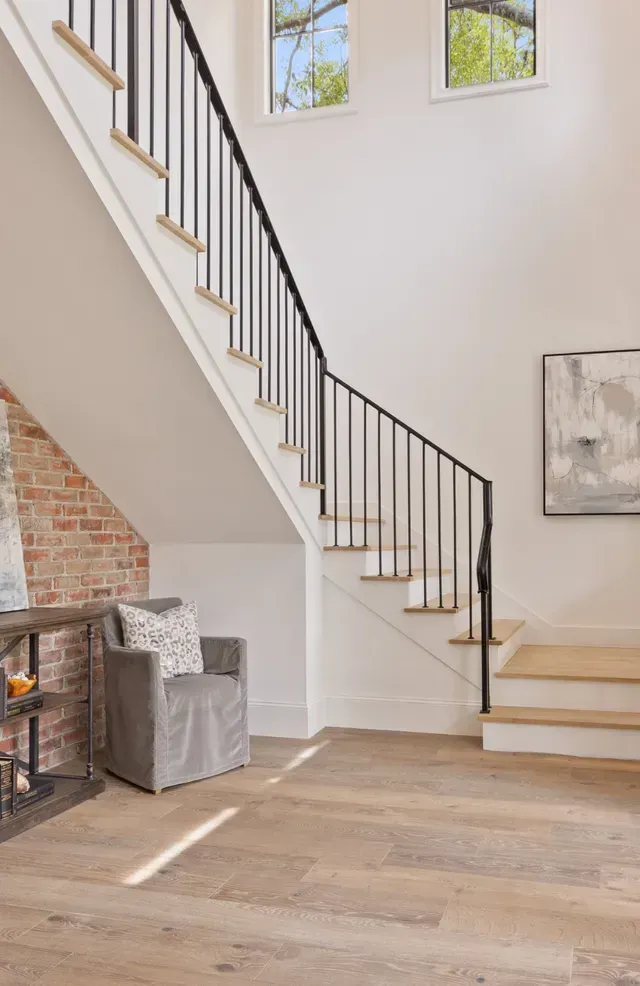
Phone: +1 713-304-5330
Address: 8588 Katy Fwy #450, Houston, TX 77024, United States


